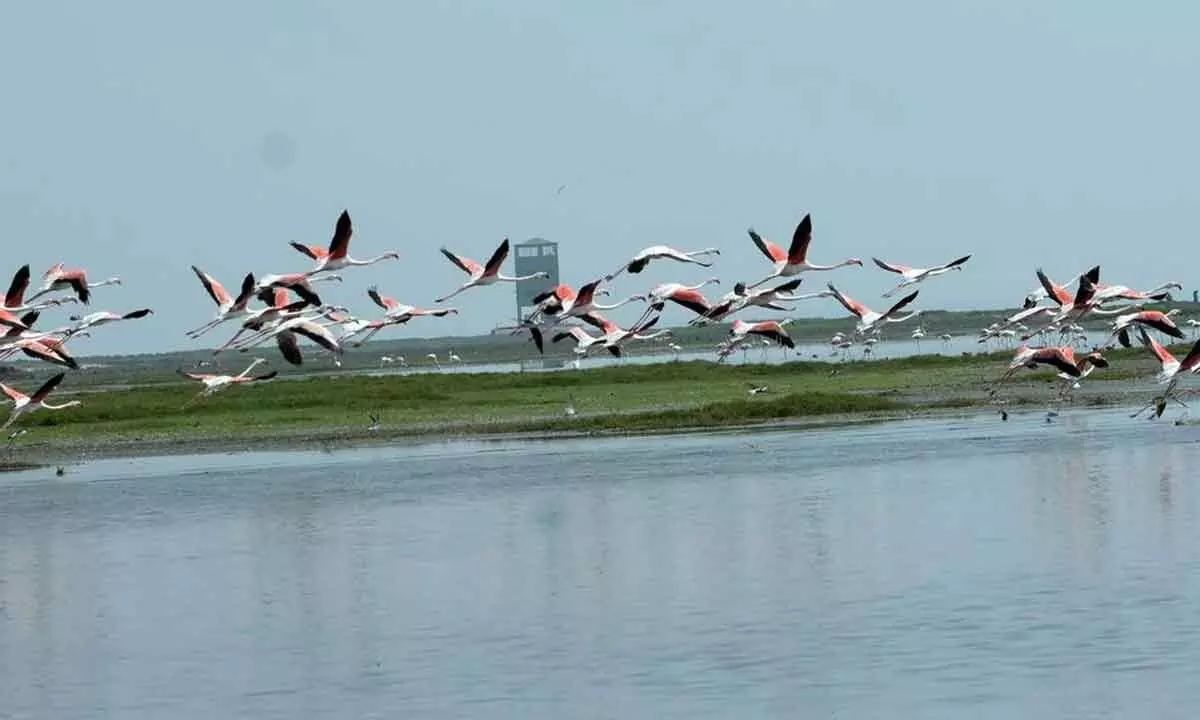Chilika Lake hosts 10.93 lakh migratory birds this winter

Bhubaneswar: Asia's largest brackish water lagoon, Chilika Lake, has welcomed 10.93 lakh migratory birds this winter, 5.4 per cent more than last year, according to a survey.
A total of 11,31,929 birds were recorded in the lake this year, of which 10.93 lakh are migratory birds. This is around 57,000 more than the previous year, when 10.36 lakh avian guests had visited the lake, according to a census conducted on Wednesday.
A total of 184 species of birds were found during the census. Apart from migratory birds, the survey spotted 38,880 local birds that reside at the lake. In Nalabana Bird Sanctuary in the lake, enumerators found a total of 3,42,897 birds.
The survey was conducted by 134 personnel, including bird experts from government and non-governmental organisations, along with forest officers, both working and retired.
The lagoon was divided into 21 segments. Two units went by road and 19 on boats. Each unit was led by a bird expert and comprised three to five members and a local guide.
They were provided with a status survey kit (a map of the area and the route to cover), walkie-talkie sets, binoculars, cameras and other essential items.
The bird count was carried out for all water bird species and wetland-dependent birds.
Ornithologists said they spotted 'River Lapwing', a migratory bird, which visited the lake after almost a decade.
Although the exact reason behind the rise in the number of migratory birds in the 1,100 sq km lake is yet to be ascertained, forest officials attributed it to the availability of food and no disturbance in the area.
The winged guests from far-off places, including the Caspian Sea, Lake Baikal, remote parts of Russia, central and southeast Asia, Ladakh and the Himalayas, descend on the lake every winter for feeding and roosting. They start their homeward journey with the onset of summer.











